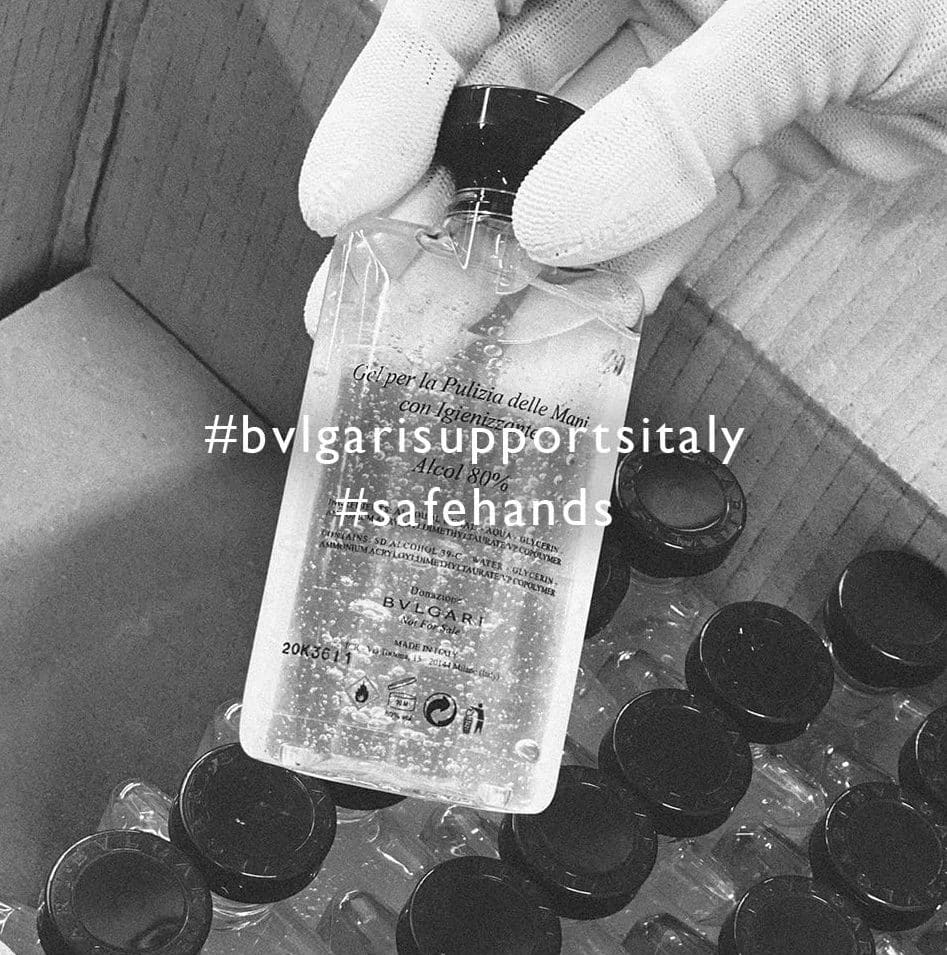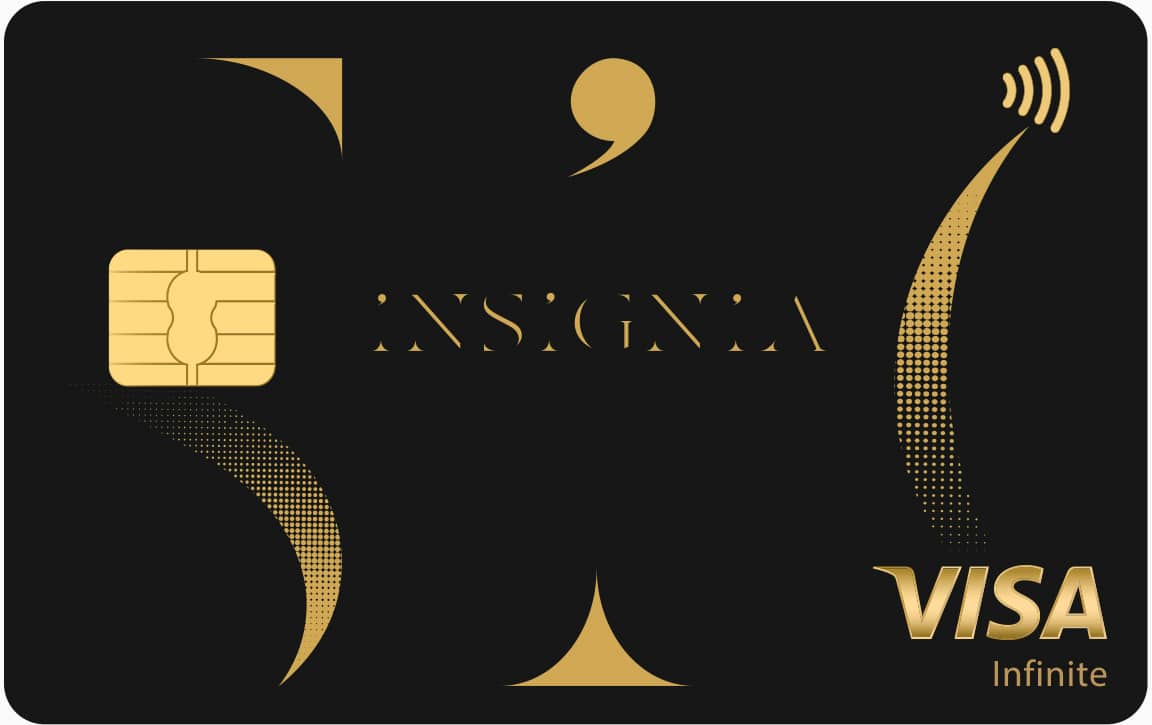Luxury brands are utilising their production facilities to help combat COVID-19, from manufacturing surgical masks and gowns to feeding the vulnerable and providing mental health support to their employees.

The luxury industry often gets a hard time for being frivolous, but its efficient and philanthropic response to the coronavirus pandemic has provided vital aid on the front line.
When Hugh Montgomery, Professor of Intensive Care Medicine at University College London, approached Anya Hindmarch to create a holster for frontline NHS workers, the luxury accessories brand was more than happy to oblige. The brand also created 3,000 PPE gowns for the Royal Marsden, and there are a further 6,000 in the pipeline.
Fewer than 72 hours after the French government put a call out to businesses to help in the effort against Covid-19, luxury conglomerate LVMH had reassigned its factories, usually charged with churning out perfumes for the likes of Christian Dior, Givenchy and Guerlain, to produce hand sanitiser. 12 metric tonnes of gel have been donated to 39 Parisian hospitals so far, with more expected in the coming weeks. The brand has also ordered 40m face and surgical masks from China to be distributed amongst French healthcare workers, having already donated £1.9m to The Red Cross Society in China when the coronavirus outbreak first occured in January.
In addition to a hefty donation to the Spallanzani hospital in Italy to acquire a new 3D microscope, Italian jeweller Bulgari has announced it will be producing several hundreds of thousands of hand sanitiser in collaboration with its perfume partner ICR, to help combat COVID-19. The 75ml recyclable bottles will be distributed to medical facilities through the Protezione Civile (Italian Civil Protection Department).

At Insignia, as a leading luxury lifestyle management and financial services company, we have developed a new technology for payment cards. In partnership with Columbia University, our team of experts have developed a payment card coated in silver that repels bacteria from its surface. The technology will be made available to all manufacturers so that businesses and consumers can feel safe while making transactions.

Aside from the obvious manufacturing developments, there are also small changes that companies are slowly implementing within their culture. The focus on the economy is smaller than the focus on wellbeing right now. However, the shift in perspective will provide relief to both parties. Happier workers deliver better work, right?
Culture is the culmination of years, if not decades, of decision making. It should have a trickledown effect, shaped by the Board and passed down through the Chief Executive to the Directors and so on until it reaches those at the bottom rungs of the corporate hierarchy. That culture has to flow effectively through all pipelines of the company. One bad egg could spoil the entire basket.
Some businesses believe that being nice is a sign of weakness. It’s not. Being nice is a measure of common courtesy, professionalism and demonstrating that your personal politics is based around values. If you’re a business owner, it also shows that the culture you want for your company is one based upon values. Even if previous decades may have supported the notion that in business “nice guys finish last” brand ethics driven by consumer demand has seen the pendulum swing in the opposite direction since the turn of the century.
Virgin, Cisco, Twitter and many more are renowned for treating their employees well and on that basis alone, everyone wants to work for them. Those companies can literally line up the brightest minds, the smartest talents and cherry pick to their hearts content. In football terms, think of it as being the guy responsible for transfers at Barcelona or Real Madrid, rather than trying to convince players to join your club, the world’s top talent is banging down your door begging for you to sign them up.
Treating staff like members of family often helps. That’s effectively what they are, extended members of your family. You probably spend more time with them than you do with your direct siblings after all. You wouldn’t treat a member of your family disrespectfully (well, hopefully not anyway) and the same should be true of your staff.
What is one of the first and fundamental lessons every responsible parent teaches their child? To treat others how you would want to be treated. The biggest obstacle here is human nature. It’s simply easier to be rude because being kind takes more practice and energy. Rather than acting on impulse, being kind requires you to stop and think about what you are saying, why you are saying it and what result it will produce.

For senior management, this is a bigger issue because, for fear of negative repercussion, there may not be anyone to provide feedback when the senior manager is being rude. This often means managers or leaders or anyone who holds authority are sometimes oblivious to just how rude they are being.
The number one reason why people quit their jobs is not to do with money or lack of opportunity or poor leadership, it’s when they feel their work is undervalued or underappreciated or where there is a hostile working environment.
Creating a pleasant culture is just good old fashioned common sense. Your staff whittle away dozens of hours of their time in your company every week, when you spend that much time doing something, it should be something you feel passionate and care deeply about.
The company culture is a set of values that everyone knows and which are at the core of all internal communication. A pleasant culture makes people feel valued and respected. Like they’re part of a team. There are no shortcuts here. You can’t fake a culture of kindness. If you’re trying to advertise your brand as “kind” or “ethically responsible” or “taking care of customers”, your culture needs to reflect that.
People who are compassionate and kind are easier to work with. They are people who get things done without stepping on others. They don’t use fear tactics or shaming.
MANAGING HOSTILITY WITH POLICIES AND STAFF TRAINING
The next time a colleague addresses you in a curt fashion or sends you an attitude-laden email or even takes a tone that is mildly unprofessional, disarm them with courtesy. Trust me. It works. When someone is being hostile or aggressive and expects you to respond in kind and for the situation to blow up into a shouting match, best practice is to smile, ask them politely, diplomatically, calmly what you can do to help or how their day is going. It brings their hostility crashing down.
Of course, it’s not always easy to remain level-headed in the heat of the moment. We’re all human, frustrations boil, tempers flare, and the onus for keeping a calm environment shouldn’t fall squarely on the shoulders of the individual. This is where company policy and staff training, in conjunction with office culture, come into play.

It goes without saying that all employers in this day and age should have an anti-harassment and bullying policy, by law in most countries and by common courtesy and decency anywhere else. It’s all well and good putting these policies in place, but they’re no use unless they are effectively communicated, acutely observed and practiced and unless they are enforced properly.
In a particularly high-profile case, an equity saleswoman at the London branch of the Russian bank Sberbank CIB, Svetlana Lokhova, was awarded over £3.1 million having successfully won claims for sexual harassment, discrimination, victimisation and unfair dismissal against male colleagues. What is interesting about this particular case is that the company had all the necessary procedures and policies in place to prevent or minimise harassment, discrimination and victimisation. They just weren’t practiced or enforced.
Quite aside from the hefty financial hit the company suffered as a result, it could be argued that the damage to the businesses reputation was even more costly. In the current climate, brand ethics is priceless but we’ll come back to brand importance in a moment.
Another important preventative measure is training. Staff need to be trained, in accordance with relevant legislation and the company’s own ethics policy on equal opportunities and harassment issues. Companies need to evaluate managers on how they interact with their employees and keep records of any disciplinary hearings or warnings etc.
Another practice you want to concentrate on is kneading out any hostility or negativity in the workplace. An academic conference at Stanford University focusing around the topic of the psychology of kindness in the workplace found that the assumption that forgiveness is weak or that negative feedback is motivational is fundamentally flawed.
The leading researcher, Jay Narayanan, said that grudge-holders perceived a hill as steeper than people who had been asked to forgive someone. The grudge acts as a heavy backpack that people wear, yet they resist forgiving others because they fear it will make them appear weak.
If you have a culture of kindness rather than hostility embedded within your company, you have employees who walk around with less baggage, freeing them up to focus on their jobs instead of throwing their colleagues under the bus.
To enforce the philosophy that positive culture trumps negative culture, consider James L. Heskett, the UPS Foundation Professor of Business Logistics, Emeritus and author of The Culture Cycle. He said that half of the difference in operating profit between organisations can be attributed to effective cultures. That a culture of kindness results in lower wage costs for recruiting top talent, lower training costs, and higher productivity with fewer lost sales and higher sales per employee.
MAKING EMPLOYEES PROUD TO REPRESENT YOUR BRAND IS IMPORTANT FOR RETAINING SKILLED STAFF
Consumers are increasingly becoming aware of brand ethics and are making the choices of which brands they engage with on this basis.
Generally, all you need to know is that the rule that applies to consumers, equally applies to employees. It’s fairly straight forward, if you were in the jobs market and had received offers from two different companies, one of them notorious for treating staff poorly, expecting them to work overtime without pay, not offering a pension plan or healthcare etc., and one of them, a company publically well regarded for exercising extended paternity leave, offering excellent career opportunities and training, flexible working hours etc., it’s not difficult to understand which offer would be accepted and which rejected.
It’s not my place to name names but do a quick search on the internet for “the best brands to work for” and “the worst brands to work for” and you’ll quickly get an understanding of why some companies are straddled with incompetent staff and others soar having attracted top talent with relative ease.
The lesson is that no one wants to work for a company where they are devalued and disrespected and unappreciated. Why would they? But when an employee takes pride in the brand they are a part of, their performance increases and this benefits the business. They’re more engaged when the company is publicly respected because it shows honesty and integrity and acts in a manner consistent with the core values it projects.
So there she is, some of the reasons why a hospitable working environment will help cultivate a happy working environment where staff feel motivated and valued. Of course, every member of staff is part of the organizational whole meaning that each one bears partial responsibility to contributing towards that culture. Ensure that your own contribution is a positive one and you’ll reap the rewards.





















